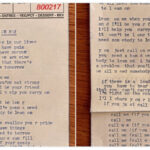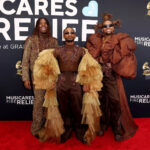Kendrick Lamar stands as a titan in the modern rap landscape, his ascent unparalleled in its critical acclaim and cultural impact. Celebrated for his intricate lyricism, innovative songwriting, boundless creativity, and profound perspective, Lamar has cultivated a discography that masterfully navigates the delicate balance between introspective reflection and sharp analysis of the world around him.
Whether he’s delving into themes of addiction, societal violence, class disparities, familial bonds, the complexities of Compton life, or even playful jabs at rivals like Drake, Lamar skillfully manipulates his vocal delivery and penmanship to embody diverse narrators, each tailored to the unique narrative he intends to unfold. This evocative storytelling has been the cornerstone of Lamar’s journey, propelling him to both critical and commercial pinnacles, marked by chart-topping hits, prestigious Grammy Awards, and the distinguished Pulitzer Prize. Adding to his monumental career, Lamar has graced the stage as the headliner of the Super Bowl Halftime Show, captivating a global audience with his compelling narratives alongside SZA.
In anticipation of such groundbreaking performances and to celebrate his enduring influence, Payoffsong delves into the essential tracks that define Kendrick Lamar’s artistry. While the depth of his catalog means some beloved songs inevitably remain unmentioned, this curated list showcases a comprehensive cross-section of Lamar’s lyrical genius, songwriting prowess, and the sheer brilliance that makes each track indispensable. – WE
All the Stars
Image Credit: Courtesy of Interscope
“All the Stars,” the lead single from Lamar’s curated “Black Panther” soundtrack, served as a compelling preview of the ambitious sonic landscape he and Top Dawg Entertainment (TDE) envisioned for Ryan Coogler’s groundbreaking Marvel film. Distinguished as one of the soundtrack’s more understated tracks, “All the Stars” nonetheless shines brightly. Lamar’s composed and deliberate delivery perfectly complements SZA’s ethereal vocals on the captivating hook (“This may be the night that my dreams might let me know / All the stars are closer”), all set against a backdrop of a driving, synth-laden beat enriched with lush string arrangements. Becoming a ubiquitous radio sensation, “All the Stars” also garnered widespread critical acclaim, earning nominations and awards at the Grammys and MTV VMAs, and notably securing Lamar’s first Academy Award nomination for Best Original Song. “Black Panther” and its soundtrack marked Lamar’s formal foray into the world of cinema, a journey that continues with his and PGLang’s Dave Free’s foray into comedy film production, co-producing a project with the creators of “South Park,” Matt Stone and Trey Parker. – AJ
Alright
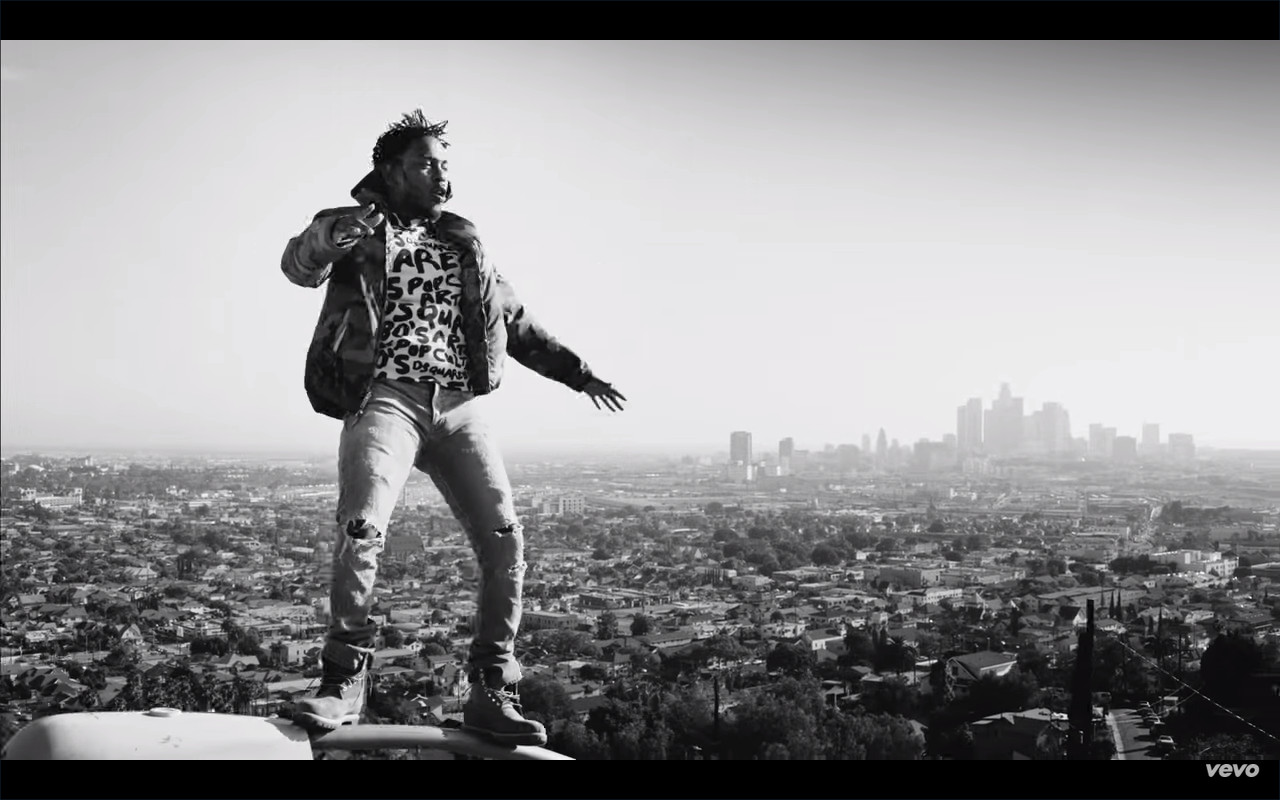 Kendrick Lamar Alright music video protest song
Kendrick Lamar Alright music video protest song
Image Credit: Courtesy of Interscope
Opening with a profound reference to Alice Walker’s seminal novel “The Color Purple” (“Alls my life I has to fight”), Lamar establishes “Alright” as a powerful declaration of Black artistry and resilience. Released as the fourth single from the seminal album “To Pimp a Butterfly,” the track transcended its musical form to become an anthem of protest for a generation, deeply resonating as Lamar explored the inherent duality of the Black experience. He meticulously crafted the lyrics over six months, sitting with the Pharrell-produced beat until he discovered the precise message he wanted to convey. The resulting approach, described by Lamar as “uplifting but aggressive,” fearlessly confronts police brutality with poignant (and often tragically misunderstood) lines like “And we hate po-po / wanna kill us dead in the street fo sho,” while simultaneously offering an unwavering message of hope and perseverance: despite the adversities, “we gon’ be alright.” This potent combination of social commentary and uplifting spirit cemented “Alright” as one of Kendrick Lamar’s most impactful songs. – AJ
Backseat Freestyle
Image Credit: Courtesy of Interscope
One of Kendrick Lamar’s most remarkable artistic instincts lies in his masterful control over vocal dynamics, knowing precisely when to transition from a contemplative flow to an assertive, growling roar. “Backseat Freestyle” exemplifies this perfectly, unleashing the snarling intensity to maximum effect. Produced by Hit-Boy, the track stands in stark sonic contrast to other tracks on “Good Kid, M.A.A.D City” like “Bitch, Don’t Kill My Vibe”—it’s deliberately stripped down and skeletal, and this is precisely what makes it so impactful. Free from superfluous embellishments, “Backseat Freestyle” is a raw and unfiltered ode to Compton, characterized by the stark clang of metallic sounds and a well-deserved demand for respect. It’s a powerful celebration of his hard-earned accomplishments, delivered with the prescient caveat that he will never lose focus or become complacent: “My mind is livin’ on cloud nine and this nine is never on vacation,” he emphatically raps. This track showcases Lamar’s ability to command attention with lyrical prowess and sonic minimalism. – SH
Bitch, Don’t Kill My Vibe
 Kendrick Lamar Bitch Dont Kill My Vibe music video iconic track
Kendrick Lamar Bitch Dont Kill My Vibe music video iconic track
Image Credit: Courtesy of Interscope
By the time “Bitch, Don’t Kill My Vibe,” the fifth single from Lamar’s breakthrough album “Good Kid, M.A.A.D City,” was released, he had already solidified his hit-making capabilities with certified bangers like “Swimming Pools (Drank)” and “Backseat Freestyle,” in addition to a successful collaboration with Drake on “Poetic Justice.” Originally envisioned as a collaboration with Lady Gaga, the song evolved into a profound meditation on his burgeoning status within the music industry and his artistic mindset. It became a powerful declaration of Lamar as an iconoclast, offering an early glimpse into the integrity and unwavering passion he would employ to distinguish himself from his contemporaries. “Bitch, Don’t Kill My Vibe” is more than just a song; it’s a statement of artistic intent and self-awareness, marking a pivotal moment in Kendrick Lamar’s career trajectory. – Todd Gilchrist
DNA
 Kendrick Lamar DNA song analysis To Pimp A Butterfly era
Kendrick Lamar DNA song analysis To Pimp A Butterfly era
Image Credit: Courtesy of Interscope
If there’s one consistent lesson Kendrick Lamar has taught his devoted fanbase, it’s that he consistently challenges his listeners and himself, demanding active engagement with his art. While fully capable of producing chart-topping hits on demand, Lamar consistently opts to push boundaries and defy expectations. Following the jazz-infused complexities of “To Pimp a Butterfly,” he delivered another curveball with the mind-bending “DNA.” The track initiates with a catchy, swampy groove that seems to bounce along conventionally, only to progressively morph into a sonic tapestry of increasing complexity and eccentricity. “DNA” soon layers in three completely disparate musical elements that challenge the listener’s cognitive processing, barely allowing the brain to synthesize the disparate sounds into a cohesive whole. Yet, amidst the sonic experimentation, the lyrical content remains remarkably clear, revealing Lamar’s profound self-awareness and early recognition of his internal conflicts: “Realness, I just kill shit ’cause it’s in my DNA / I got millions, I got riches buildin’ in my DNA / I got dark, I got evil that rot inside my DNA / I got a troublesome heart inside my DNA.” “DNA” is a testament to Lamar’s commitment to artistic innovation and lyrical depth. – JA
Euphoria
 Kendrick Lamar Euphoria Drake diss track rap beef
Kendrick Lamar Euphoria Drake diss track rap beef
Image Credit: Courtesy of Interscope
While “Euphoria,” Lamar’s initial Drake diss track, may not have achieved the cultural phenomenon status of “Not Like Us,” it stands as a brutally effective dismantling of the pop star, delivered across three progressively aggressive beat transitions. Beginning with a subtly menacing intro, laced with veiled threats (“Know you a master manipulator and habitual liar too / But don’t tell no lie about me and I won’t tell truths ’bout you”), “Euphoria” methodically escalates into a barrage of pointed barbs. Particularly scathing are the accusations of absentee parenting that follow the line “I got a son to raise, but I can see you don’t know nothin’ ’bout that.” Each line in “Euphoria” is designed to shock and wound, effectively setting the stage for “Not Like Us” to inevitably dominate internet discourse. “Euphoria” is a masterclass in lyrical combat, showcasing Lamar’s ability to dissect and decimate an opponent with precision and calculated aggression. – WE
King’s Dead
Image Credit: Courtesy of Interscope
Lamar’s curated soundtrack for “Black Panther” reaches a crescendo with “King’s Dead,” an explosive hip-hop collaboration featuring himself, Jay Rock, and Future. While Future’s verse may stray somewhat from the thematic and narrative threads of Ryan Coogler’s film, Lamar and Jay Rock more than elevate the track to the epic scale befitting a king, whether living or deceased. Their contributions are so impactful that Jay Rock even chose to feature “King’s Dead” as the lead single for his subsequent album. Even within the parameters of a superhero movie soundtrack, Lamar emphatically demonstrates his capacity to conquer any creative challenge he undertakes. “King’s Dead” exemplifies Lamar’s ability to shine even in collaborative projects, delivering verses that are both thematically resonant and artistically dominant. – Todd Gilchrist
Money Trees
Image Credit: Courtesy of Interscope
Set against a hazy, hypnotic beat crafted by DJ Dahi and Hit-Boy, Lamar delivers a captivating call-and-response flow in “Money Trees” that evokes the pervasive sense of nostalgia characteristic of “Good Kid, M.A.A.D City.” Obsessed with both the allure of music and the grim realities of tragedy, he seamlessly interweaves references to Usher and E-40 with the ever-present specter of violence in his surroundings. The chorus delivers a profound and recurring theme for the sprawling album: “Everybody gon’ respect the shooter/But the one in front of the gun lives forever.” Jay Rock’s featured verse is a career highlight, delivering urgent rhymes about the intricacies of drug dealing, rich with specific details that could serve as a blueprint for a small, albeit illicit, business. “Money Trees” is a standout track that encapsulates the sonic and thematic essence of “Good Kid, M.A.A.D City.” – WE
Not Like Us
Image Credit: Courtesy of Interscope
Even before its impressive haul of five Grammy Awards, “Not Like Us” had already solidified its place as an instant classic within Kendrick Lamar’s illustrious catalog of timeless hits. Directly targeting Drake, it also resonated deeply with a fervent fanbase of West Coast hip-hop that had been yearning for a ubiquitous anthem from a superstar representative of their sound for years. “Not Like Us” effectively filled this void, showcasing two acclaimed artists—Lamar and DJ Mustard—operating at the peak of their creative powers, doing what they do best. Built upon a foundation of almost aggressively syncopated rhythms, the beat is clean, minimalistic, and undeniably West Coast. Lamar’s rapping style is feverish, often landing slightly ahead of conventional phonetic patterns, creating that signature West Coast sonic texture. The success and freshness of “Not Like Us” offer valuable insights, but perhaps the most important takeaway is the empowering message: embrace your inner critic. “Not Like Us” is more than just a diss track; it’s a cultural phenomenon and a West Coast hip-hop revival anthem. – Thania Garcia
Poetic Justice
Image Credit: Courtesy of Interscope
“Poetic Justice,” framed around a sample of Janet Jackson’s honeyed vocals from “Any Time, Any Place,” featuring Drake, stands as arguably the sole love song on “Good Kid, M.A.A.D City”—and it’s an exceptional one. As one of his most commercially successful tracks to date, “Poetic Justice” undeniably benefits from the timeless sensuality of Jackson’s original sample. Once listeners move past the presence of Drake, it becomes evident that the now-rivals once possessed undeniable musical chemistry. The lyrical beauty of the song is further enhanced by visually striking one-liners, such as the thought-provoking question: “If a flower bloomed in a dark room would you trust it?” “Poetic Justice” is a testament to Lamar’s versatility, proving his ability to craft both hard-hitting anthems and tender, introspective tracks. – Thania Garcia
Rich Spirit
Image Credit: Courtesy of Interscope
Anchored by a chorus that warns, “Stop playin’ with me ‘fore I turn you to a song,” Lamar delivered a FAFO (fuck around and find out) cautionary message with “Rich Spirit” from “Mr. Morale & the Big Steppers.” This warning would prophetically materialize two years later in his historic and Grammy-winning feud with Drake. Simultaneously, “Rich Spirit” functions as an admonishment directed inward, particularly within the context of verses where Lamar critically examines his own achievements and responsibilities within the music industry. He also explores his evolving relationships with a growing circle of confidantes, collaborators, and even supposed loved ones (“And my cousin tried to sue me like he got the privilege”). Lamar notes that all these complexities are increasingly exacerbated by his escalating success. “Rich Spirit” is a multi-layered track that serves as both a warning to others and a moment of introspective self-assessment for Lamar himself. – Todd Gilchrist
Rigamortus
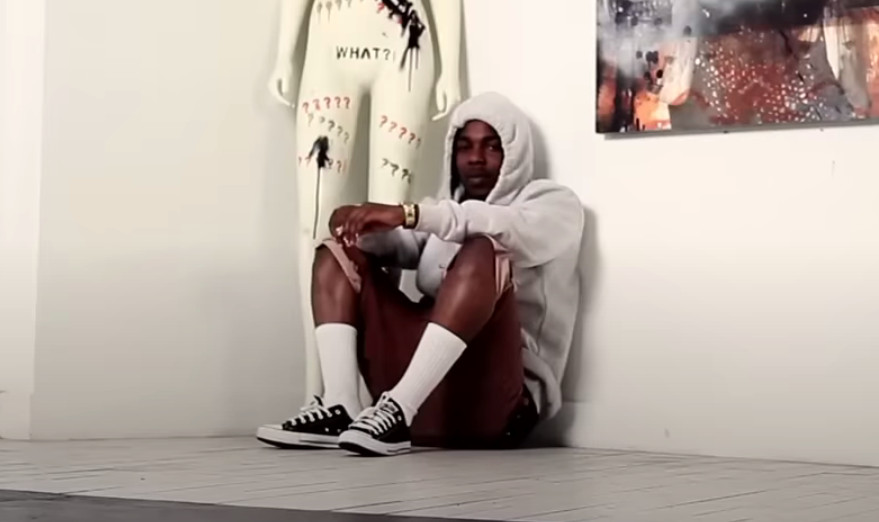 Kendrick Lamar Rigamortus Section 80 debut album
Kendrick Lamar Rigamortus Section 80 debut album
Image Credit: Courtesy of Interscope
“Section.80” served as a crucial introduction for those who had yet to fully grasp the electrifying energy of Lamar’s mixtape era. His 2011 debut album solidified his foundational strengths as an emcee—equally adept at dissecting the pain and struggles of street life while acknowledging the allure of the vices that accompany escaping it. “Rigamortus” masterfully finds a middle ground by foregrounding his exceptional lyrical skills, issuing a clear warning to his rap peers that his wordplay is a formidable weapon. He doesn’t merely assert this skill; he demonstrates it, showcasing his lyrical nimbleness as he effortlessly glides across the horn-driven instrumental. He toys with double and triple meter rhyme schemes while firing off warning shots at every lyrical turn. If there was ever a definitive starting point for Kendrick Lamar’s ascent, “Rigamortus” undeniably played a significant role in drawing that initial line. – SH
Swimming Pools (Drank)
Image Credit: Courtesy of Interscope
“Swimming Pools (Drank)” emerged as an introspective party anthem during Lamar’s relatively early career, marking his debut on the Interscope label. Within the track, Lamar tackles the pervasive issue of alcohol abuse through rhyme, and in retrospect, “Swimming Pools (Drank)” serves as an obvious and brilliant precursor to Lamar’s widely recognized politically charged approach to rap music. From the outset, he establishes the seductive allure of alcohol – “Some people like the way it feel / Some people wanna kill their sorrows / Some people wanna fit in with the popular” – only to introduce a cautionary voice of conscience midway through the song. By the conclusion of “Swimming Pools (Drank),” Lamar has skillfully woven a cautionary narrative, one that is deeply personal and representative of a cyclical pattern of violence prevalent in Compton. “Swimming Pools (Drank)” is a nuanced exploration of societal issues masked within a catchy, party-ready track. – Thania Garcia
TV Off
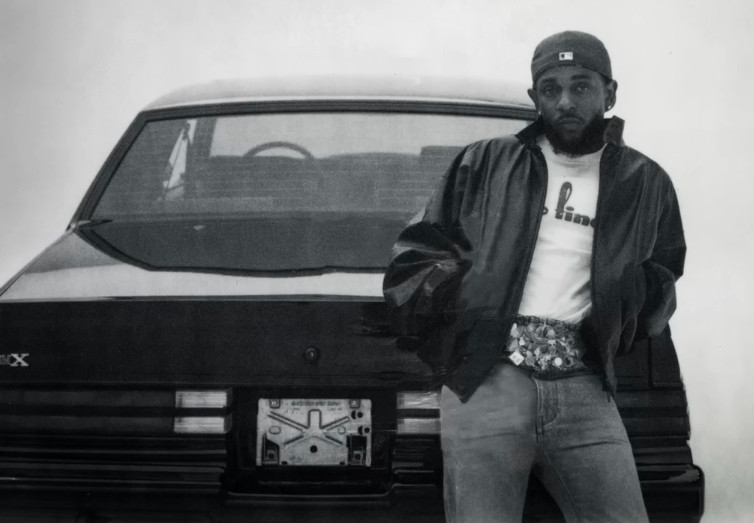 Kendrick Lamar TV Off lighthearted victory lap song
Kendrick Lamar TV Off lighthearted victory lap song
Image Credit: Courtesy of Interscope
While “TV Off” may adopt a more lighthearted tone and exhibit less lyrical complexity than what is typically expected from the Pulitzer Prize-winning artist, it remains an irresistibly catchy and celebratory victory lap of a song. Opening with a sample from MacArthur Park’s “Monk Higgins,” Lamar incites action against conformity, urging listeners to “turn the TV off” as a means to resist unconscious manipulation. From its triumphant horn section to the meme-worthy vocal exclamations of “Mustaaaaaaaaaard!” and “Crazy, scary, spooky, hilarious,” Lamar builds upon the resounding success of “Not Like Us” with another classic Mustard production. “TV Off” showcases Lamar’s ability to blend social commentary with infectious hooks, creating music that is both thought-provoking and undeniably fun. – Thania Garcia
untitled 05 | 09.21.2014.
 Kendrick Lamar TV Off lighthearted victory lap song
Kendrick Lamar TV Off lighthearted victory lap song
Image Credit: Courtesy of Interscope
Lamar’s lyrical craftsmanship is razor-sharp in “untitled 05 | 09.21.2014.,” a bleak lamentation on class disparities. In the opening verse, his character is depicted at the brink of despair (“Once upon a time I used to go to church and talk to God / Now I’m thinkin’ to myself, hollow tips is all I got”) and commits a shocking act of violence, all set against a backdrop of a jazzy chorus featuring Anna Wise and a subtly creeping Thundercat bassline. Lamar’s vocal delivery is raw and emotionally charged, and the subsequent verses, passed to Punch and Jay Rock, only amplify the track’s intense atmosphere. Lines like “Justice ain’t free, therefore justice ain’t me / So I justify his name on obituary” are particularly resonant, serving as precise throughlines within Lamar’s broader storytelling. The fact that these powerful lyrics are featured on a demo album further underscores their significance. “untitled 05 | 09.21.2014.” is a raw and unflinching exploration of desperation and social injustice. – WE
XXX
 Kendrick Lamar XXX American Dream religion ambitious track
Kendrick Lamar XXX American Dream religion ambitious track
Image Credit: Courtesy of Interscope
In “XXX,” Lamar ambitiously tackles the complexities of the American Dream and religion. Adapting his flow to align with several distinct variations within the beat, the latter half of the first verse finds Lamar in a breathless, rapid-fire mode, rhyming about the futility of offering comfort to a friend whose child was tragically killed over money: “‘I can’t sugarcoat the answer for you, this is how I feel / If somebody kill my son, that mean somebody gettin’ killed,” he raps, as the ominous sound of police sirens threatens to overwhelm the beat. Soon, the song transitions into a jazzy, more subdued vibe, with Kendrick’s verse engaging in a thematic dialogue with the distinct voice of Bono. A flood of weighty ideas ensues: “It’s murder on my street, your street, back streets, Wall Street / Corporate offices, banks, employees, and bosses with / Homicidal thoughts, Donald Trump’s in office.” “XXX” is an expansive and thought-provoking track that grapples with profound societal issues and personal moral dilemmas. – WE

